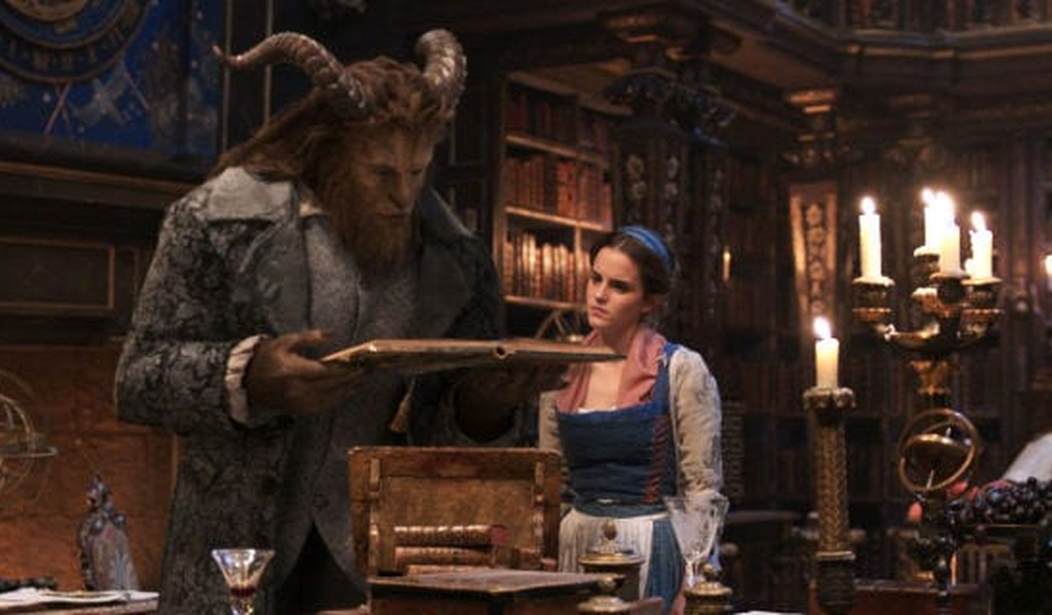In choosing Emma Watson to play Belle in the new live-action remake of Beauty and the Beast, Disney was making a very specific statement. Though she is best known for her portrayal of Hermione Granger in the Harry Potter franchise, in recent years Watson has become a spokesman (sorry, spokeswoman) for feminism. Casting her as Belle allowed Disney to silently, but very clearly, telegraph to potential moviegoers that they didn’t need to worry about letting their little girls come to the film. Belle would be a feminist princess.
In the years since the original animated version of Beauty and the Beast came out in 1991, Disney has been battling backlash against its princesses. Concerns that the princesses teach girls to passively sit around waiting for their Prince Charming to come solve all their problems have basically sent Disney scrambling to create characters that espouse more feminist values (for better or worse. Mostly worse) so that parents wouldn’t keep their daughters away from the theater.
In resurrecting a classic that was made before feminism had Disney fully in its clutches, they had to let us all know that it was safe to bring our little girls to the movies. So they cast Emma Watson. Who dutifully gave interview after interview about how they’d updated Belle for a modern, more feminist audience.

Emma Watson as Belle
(Image: YouTube)
But, if you actually watch the movie, it just isn’t true. Sure, she gets to wear boots instead of ballet flats, and she invents some sort of weird, elaborate washing machine thing but, basically, they changed almost nothing about the kind of person she actually is. She’s the same old Belle we all know and love. Which is partly why I liked the film so much (feel free to read my full review here).
So, what’s going on? Why all this talk about making Belle more feminist if they weren’t actually going to do much to her character at all? And how should we, who hold more traditional values and are looking for more feminine (rather than feminist) role models for our daughters, feel about taking our kids to the film?
The answers to both of these questions are related. Belle (in both versions of the film) hits a lot of the marks that feminists tend to require in order to feel that a princess is feminist. She doesn’t jump at the first guy who asks her to marry him. She’s into reading instead of housework. She doesn’t fall in love at first sight. She stands up for herself. And she speaks her mind.

Image: YouTube
These are traits that feminists parents can feel good about passing on to their children. But they’re also traits that more traditional parents approve of too. I mean, in this day and age we can all agree that an educated, thoughtful, eloquent woman who falls in love with a man’s spirit instead of his body is someone we’d like our daughters to become. (And if we can’t, well, we probably oughtn’t be raising daughters.)
The genius of Belle’s character is that she checks enough boxes to get the feminist stamp of approval, but that, underneath, she really is a pretty traditional girl. In fact, the central theme of the story is the way in which the love of a good woman can turn a beast back into a man. You can’t get more traditional than that. Over and over again, Belle uses traditionally feminine means to tame the Beast. She tends to his wounds, teaches him table manners, reads to him by the fire, and convinces him to get all dressed up and go dancing.

Image: YouTube
And it’s because of this gentle, patient, feminine care that the Beast falls in love with Belle. And it’s because of that love (brought on by these traditional means), that he becomes a man worthy of her love.
So, should you take your daughter to see Beauty and the Beast? Absolutely. And you should let her watch the 1991 original version too. Because both Belles are the same. A traditional woman equipped for a modern age. It doesn’t get much better than that.
If you love Disney Princesses but hate what feminism has done to them, check out my Facebook page @DisneyPrincessAddict. Like and follow the page to help reclaim Disney’s heroines.









Join the conversation as a VIP Member